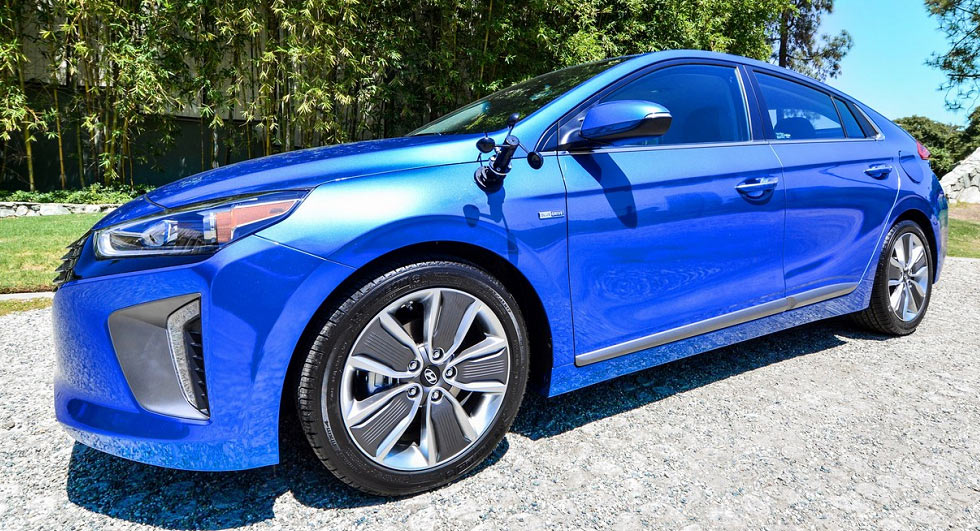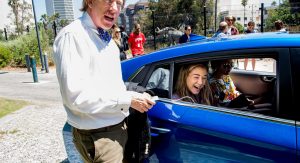Hyundai and Los Angeles County Museum of Art have teamed up to unveil the “first neuroscience-applied” concept car at the Art+Technology LAB.
Dubbed The Roadable Synapse, the neuroscience concept was conceived by artist Jonathon Keats and the car is based on the Ioniq.
Described as a “speculative alternative to driverless car technology,” the concept explores how a person’s cognitive processes could be interpreted to provide sensory experiences while traveling. In particular, it presents four ways to augment the driving experience in next-generation passenger vehicles which are “unified by one core idea: On the road, the car is the driver’s body, and the driver is the car’s mind.”
As Hyundai explains, the vehicle speed is conveyed to the driver by adjusting the tempo of the soundtrack playing on the stereo while the car’s aerodynamics are noted by adjusting the left and right speaker balance. Likewise, the RPM level is indicated via an increase or decrease in the soundtrack pitch while driving efficiency is revealed by the level of distortion in the audio system.
The technology will probably never show up in production models but Hyundai Motor Vice President John Suh said “We are constantly exploring how new forms of mobility can help us overcome current transportation limitations. Engaging with art and technology projects allows us to explore this field in entirely new ways.”
Update: Article has been updated to clarify the neuroscience idea was conceived by Keats and to provide additional information









